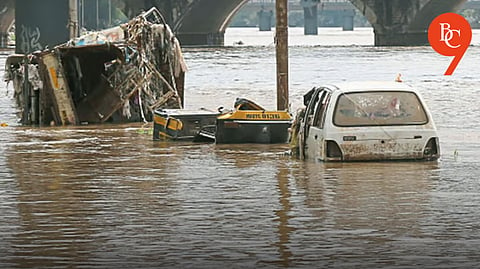

As Pune faces increasingly unpredictable monsoon patterns and intense rainfall events, the question of whether the city will receive advance flood warnings is more relevant than ever. The answer is: yes, Pune is moving towards a more robust flood forecasting and early warning system, but there is still scope for improvement and expansion.
The Central Water Commission (CWC) already issues flood forecasts at 340 stations across India, including those near metropolitan cities like Pune. These forecasts use real-time hydrological data, weather models, and satellite rainfall estimates to provide both short-range and 7-day advisory flood forecasts. These advisories are disseminated through dedicated web portals, such as the Flood Forecasting System website, and are shared with local authorities and disaster management teams.
The Pune Municipal Corporation (PMC) has accelerated flood prevention efforts, upgrading drainage infrastructure and deploying rapid-response teams to minimize urban flooding risks before the monsoon. The National Disaster Response Force (NDRF) in Pune conducts regular disaster preparedness drills, including flood rescue operations, to ensure readiness during emergencies.
Pune’s disaster management is increasingly leveraging real-time Hydro-Meteorological Information Systems (HIS), which collect and transmit data from automatic sensors to central data centers for analysis and flood forecasting. These systems can generate alarms and provide early warnings to authorities and communities at risk. Weather experts and researchers have recommended that Pune adopt advanced flood warning systems similar to Mumbai’s iFLOWS, which uses rain gauge data, GIS mapping, and predictive modeling to provide early flood alerts and inundation forecasts up to three days in advance. Such a system would give citizens and authorities crucial lead time to prepare and respond.
The Ministry of Earth Sciences is exploring the integration of artificial intelligence (AI) into weather and flood prediction, which could further enhance the accuracy and timeliness of warnings for cities like Pune.
While Pune does not yet have a city-specific, fully integrated early flood warning system like Mumbai, significant steps are being taken to improve flood prediction and response. Residents can expect better communication of flood risks as the city upgrades its infrastructure and adopts new technologies for monitoring and forecasting. Authorities urge citizens to stay updated through official channels, especially during heavy rainfall events, and to heed any advisories or alerts issued by the PMC, CWC, or IMD.
Pune is on the path to implementing more advanced flood warning systems, combining real-time data, predictive modeling, and rapid response. With ongoing investments and technological upgrades, Pune residents can expect more reliable advance flood warnings in the near future-helping protect lives and property during the monsoon season.
